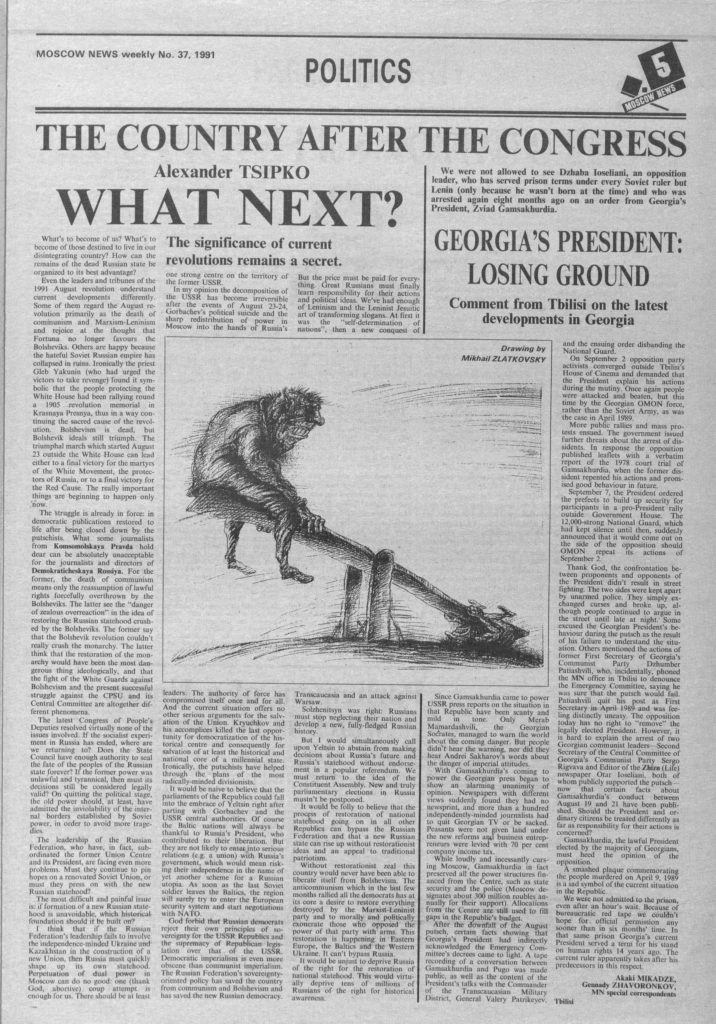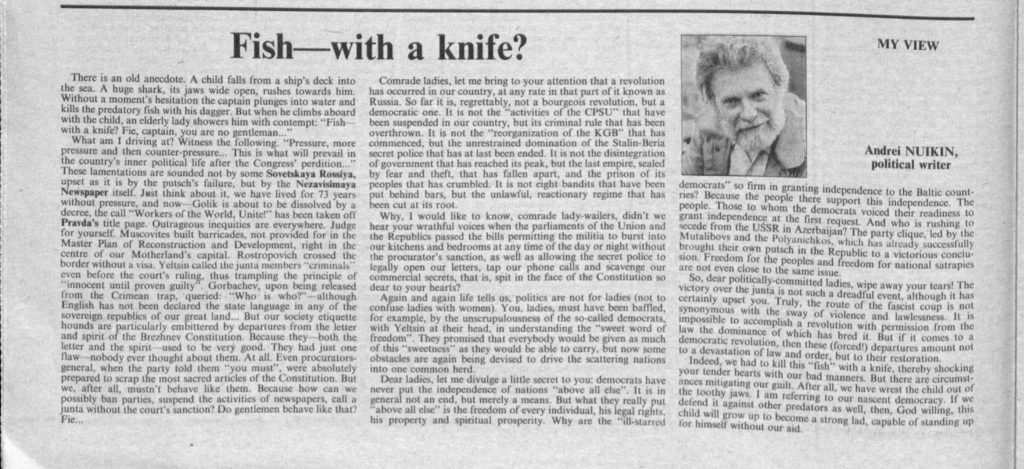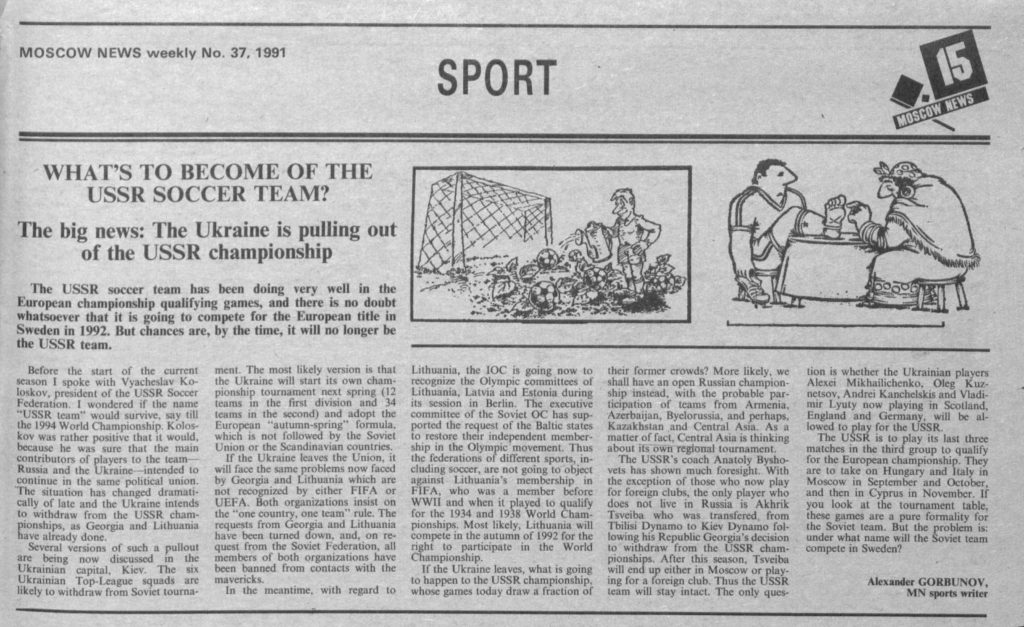By Liam Martin
By early September, it was obvious to everyone that the Soviet Union was not the power it had once been. Gorbachev was widely perceived as weak, the Soviet government was perceived as corrupt, and questions began to arise about what power might fill the void that had opened up less than a month before. In this time, attention turned to the constituent republics of the USSR. After all, Boris Yeltsin, riding a tide of rising Russian nationalism, had been a key figure in resisting the attempted August coup. Within the Moscow News, many called for power to be transferred to the republics of the USSR, with some writers even going so far as to propose independence and the dissolution of the Soviet Union.
In his article from the September 15 issue, “What Next?,” Alexander Tsipko wrote: “In my opinion the decomposition of the USSR has become irreversible after the events of August 23-24.” He went on to state: “It would be folly to believe that the process of restoration of national statehood going on in all other Republics can bypass the Russian Federation and that a new Russian state can rise up without restorationist ideas and an appeal to traditional patriotism.” As we can see, the effect of the failed coup of August was to turn the dissolution of the USSR from a possibility to an inevitability. The question for many such as Tsipko was no longer when the USSR would collapse, but how. Since the constituent republics within the USSR were the only other major centers of government power, many, at least in the pages of Moscow News, assumed them to be the logical replacement.
A more pressing question was what form these new governments would take. One likely solution expressed frequently within the September 15 issue was that of liberal democracy. In the opinion article “Fish – with a Knife?” the political writer Andrei Nukin expressed this view. He argued not just that a democratic revolution is viable, but that it was already taking place. In reference to the events following the August coup, he said that, “So far it is, regrettably, not a bourgeois revolution, but a democratic one. It is not the ‘activities of the CPSU’ that have been suspended in our country, but its criminal rule that has been overthrown.” He also expresses the view that, in order for democracy to prevail, the republics of the USSR must be given their independence, writing, “Why are the ‘ill-starred’ democrats so firm in granting independence to the Baltic republics? Because the people there support this independence.” He finishes the article by imploring that the nascent democracies of the republics continue to be protected so that they may one day stand on their own.
It is difficult to overstate how pervasive the transformation that had begun after the August coup was to what was swiftly ceasing to be Soviet society. No part of the country was untouched by the sorts of debates and questions captured on the pages of The Moscow News. Articles discussed the seizing of Communist Party records, the possibility of the impending dissolution of the KGB, and even a delightful excerpt from the sports sections report on the USSR soccer team. Alexander Gorbunov, the sports reporter, wrote that, “The USSR soccer team has been doing very well in the European championship qualifying games, and there is no doubt whatsoever that it is going to compete for the European title in Sweden in 1992. But chances are, by the time, it will no longer be the USSR team.”
Liam Martin is a junior majoring in International Studies and Russian, East European, and Eurasian Studies.
Works Cited
(1991, September 15). Page 1. Moscow News Digital Archive. Retrieved from https://dlib.eastview.com/browse/doc/49796897



